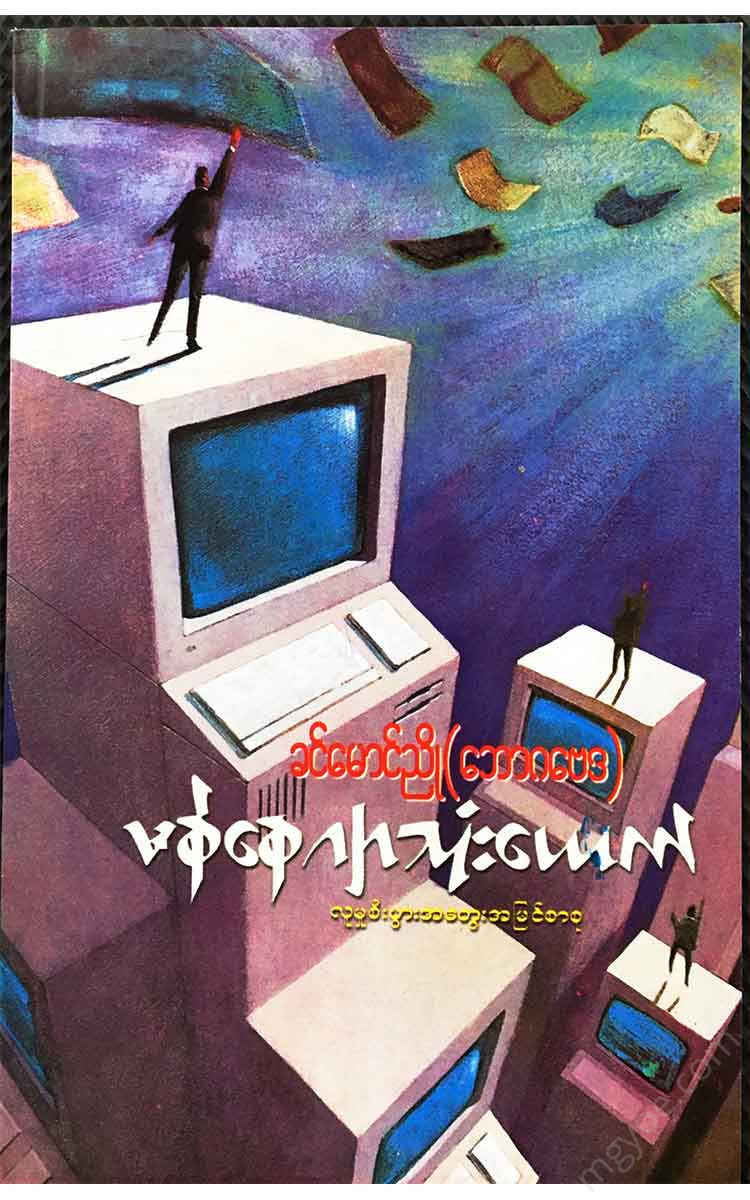စိတ်ကူးချိုချိုစာပေ
Khin Maung Nyo (Economics) - Three Managers
Khin Maung Nyo (Economics) - Three Managers
Couldn't load pickup availability
Wake up.
An old Indian man living in Oklahoma had been poor for many years. But one day, when he discovered oil on his land, he went from being poor to rich overnight. When he became rich, he immediately got up and did something he had dreamed of all his life. Instead of a Cadillac, he immediately bought a big sedan. In those days, sedans were often equipped with two wheels. But the old man wanted the longest car, so he added four wheels. He bought a big flat cap. He added ribbons to the cap whenever he wanted. He bought a motorcycle. He bought a big cigar.
In that style, he got into his car and drove to the small town of Homer, Oklahoma, every day. He wanted to see everyone. He wanted everyone to see him. Grandpa was a very sociable person from the beginning, so he would turn left and right to greet everyone he met on the road. In fact, he would walk around and talk the whole way. But the strange thing was that his car never hit anyone. Even in the heat of the day, in the middle of the night, on the dusty, narrow streets, he never hit anyone or anything.
It's no wonder he didn't hit anything. He had to pull a fancy, luxurious car with two horses in front. It wasn't because the car broke down. Grandpa didn't know how to drive. He couldn't even start the engine. He didn't know how to put the key in, or how to turn the ignition.
There were hundreds of horses inside the car. But the old Indian only used the two horses outside. He didn't use the hundreds of good horses inside the car.
When we talk about it, we laugh at the Indian grandfather, but we forget the closest person to the funny one. Is that someone else? That's right. It's us.
We have a thousand horses inside us, but we want to rely on two horses outside. We don't want to rely on ourselves, we want to be comfortable and relaxed, we want to be comfortable and relaxed. We want to rely on outside people, on external forces.
Psychologists say that we only use between two and five percent of our abilities and talents. Where does the other ninety-five percent go? It's wasted sitting around. It's wasted because it's not being used.
We often talk about environmental protection and not wasting natural resources. However, more often than not, we waste our talents. The best songs and poems often end up in the caves without being composed.
Normally, it would be sad to die without knowing that there was an oil well in your backyard or a huge gold mine. However, it would be even sadder to not be able to use the abilities and resources in your body.
Try to start yourself, my friend, don't ask two horses outside to pull you. Loosen the rope and let them go. There are already hundreds of horses inside you.
My lips are my ears.
Usually, we listen to what others say. However, we often listen only a little to what they say and think about what we should say in response. This time, let's listen to what we say again...
"I'm the same way, I tend to do the same thing"
The meaning of this word is that someone or something made me be this way. It means that I was told to be this way, to say this, to do this. So I am not responsible for everything I am, or what I do. It means that I am only responsible for the people and things that created me, shaped me.
"He's making me angry again."
I'm angry because of him. I'm not responsible for being angry. He's the one responsible. He's controlling my mind.
"I can't do it, I don't have time."
Something won't let me do it. Time won't let me do it.
"If only my wife had been more patient, what would have happened?"
This also means that the behavior of a stranger limits our abilities and capabilities.
"I have to do what I have to do."
It's a pity, whether it's the circumstances or other people, they're all around me pressuring me to do this. I don't want to do it. I don't have the right to choose what I want to do.
Aren't all these words just words that are used to shun responsibility, words that don't take responsibility for your own actions and affairs?
( 2 )
“Let’s see what we can do, what choices we can make.”
“I can choose another method.”
"I can control my emotions."
"It's not because they don't allow it. It's because the image I present is weak."
"I like it and I can choose to respond."
“I choose not to do it.” “I prefer....” “I will do it.” These words are not the same as the previous ones. Your vocabulary, your words, give you your own outlet. You are given the power to do it. You are your own master. You choose your own actions. You are responsible for your own actions. You take responsibility. Outside people, outside things cannot come and influence you. You are not under their influence.







